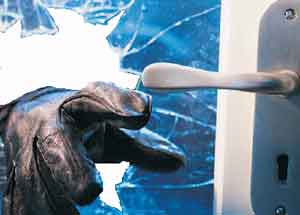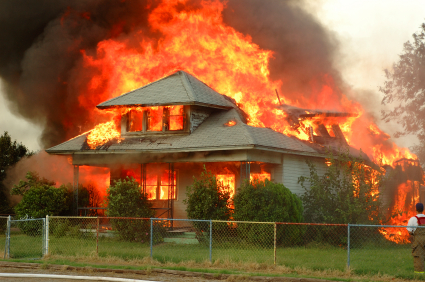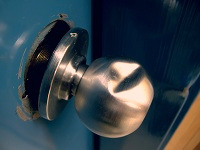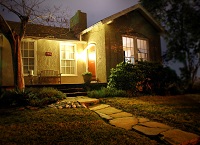 Detailed information on what burglars are looking for and what burglars want when they break into a property has now been revealed. A Washington Post infographic entitled “Anatomy of a Burglar” states that the average amount of loss per residential burglary is $1,725. Most burglaries occur between 10am and 3pm, when thieves know most people are at work.
Detailed information on what burglars are looking for and what burglars want when they break into a property has now been revealed. A Washington Post infographic entitled “Anatomy of a Burglar” states that the average amount of loss per residential burglary is $1,725. Most burglaries occur between 10am and 3pm, when thieves know most people are at work. What burglars want is for homes to appear empty. Having a car in the driveway and proper lighting turned on both outside and inside a home usually cause most burglars to look for different targets.
It also states that the typical burglar spends between 8 and 12 minutes in a house, quickly looking for valuables hidden in common places. What burglars want is to be in and out of a property quickly.
What Burglars Want When They Break In
Most burglars head to the bedroom first, searching for jewellery, cash and other small valuables that are easy to steal and also easy to sell. Most burglars do not hold on to the items they steal for very long. They are looking for valuables that they can easily turn into cash.The same graphic also states that what burglars want is to spend 60 seconds or less breaking into a home. This allows him or her to enter the home quickly without being detected by neighbours or others walking by. Deadbolts, bars or shatter-proof windows are excellent ways to deter criminals.
Alarm systems and security cameras are the best possible deterrents. Criminals would much rather break into a home undetected. As for points of entry, 34% of burglars enter through the front door while 22% choose the back door. First floor windows are also common: 23% of break-ins begin this way. The garage is also a prime target, with 9% of burglars choosing this option.
What burglars want is the fastest and easiest route to valuables. They do not want to be detected, they do not want to take very long and – above all – they do not want to get caught.
Anything you can do to make it more difficult to break into your home or make it easier to draw attention to criminal activity will help protect you from burglars. Knowing what burglars want is a crucial part of stopping them.

 If your bedrooms are located on the second floor of your home, window escape routes will be more difficult to use as a part of your emergency exit plan. However, in the case of a fire, it may be necessary to do so. Every member of the family should know how to exit from a second storey window. Placing a ladder on the outside of your home to make escape easier is NOT recommended. Criminals frequently use such ladders to gain entrance to a home.
If your bedrooms are located on the second floor of your home, window escape routes will be more difficult to use as a part of your emergency exit plan. However, in the case of a fire, it may be necessary to do so. Every member of the family should know how to exit from a second storey window. Placing a ladder on the outside of your home to make escape easier is NOT recommended. Criminals frequently use such ladders to gain entrance to a home.
 Whether you’re renovating your home or making some repairs around the house, there will inevitably be a time where you can’t handle a project and you have to look to outside help. Working with a contractor can get the work done much faster, but it’s also important to keep safety in mind. Contractor security is important.
Whether you’re renovating your home or making some repairs around the house, there will inevitably be a time where you can’t handle a project and you have to look to outside help. Working with a contractor can get the work done much faster, but it’s also important to keep safety in mind. Contractor security is important. 
 Criminals do not want to be seen. It is much easier to break into a dark property and stay hidden in the shadows than it is to walk through a lighted area where people will notice you. This is why many break and enters occur at night and why security lighting is such a good way to prevent crime.
Criminals do not want to be seen. It is much easier to break into a dark property and stay hidden in the shadows than it is to walk through a lighted area where people will notice you. This is why many break and enters occur at night and why security lighting is such a good way to prevent crime.  Moving is stressful. It’s difficult to keep track of all of the tasks required as well as the movers, your belongings, your family and everything else. With all of this stress it’s easy to let your guard down and leave yourself, your home or your possessions vulnerable. However, moving security is important.
Moving is stressful. It’s difficult to keep track of all of the tasks required as well as the movers, your belongings, your family and everything else. With all of this stress it’s easy to let your guard down and leave yourself, your home or your possessions vulnerable. However, moving security is important.